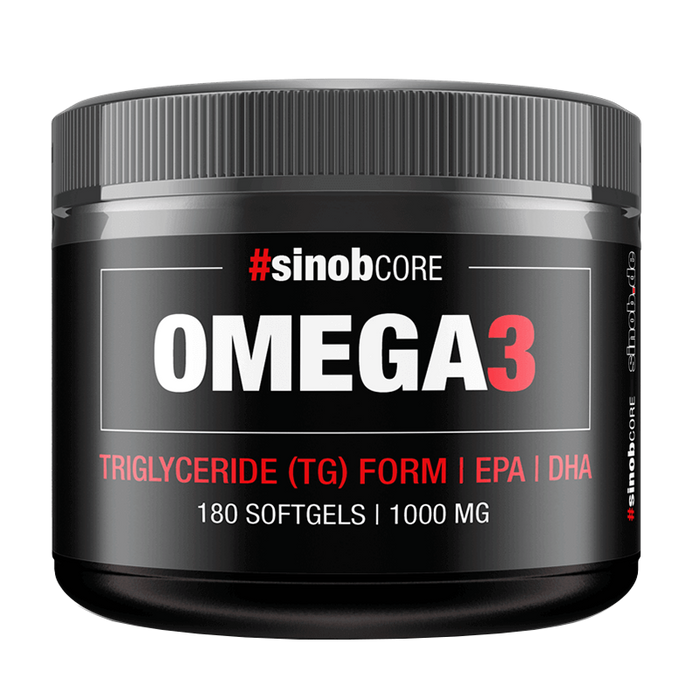Ten little fish swimming in the sea, blubb, blubb, blubb.blubb...
It should be widely known that fatty sea fish such as salmon or mackerel are healthy. But unless you live close to the coast, it comes at a price. What's more, the increasing pollution of the world's oceans is also reflected in the fish we eat. It is increasingly contaminated with pollutants and heavy metals. Even during diet phases, the macros are not always sufficient to get enough of these types of fish (which are also very high in calories) into the diet.
A sufficient intake of omega-3 fatty acids is extremely important for general health and, above all, for maintaining it in the long term. Due to the fact that our current Western diet contains many omega 6 fatty acids, the ratio of O3 to O6 is 1:17-30. 1:1 would be optimal. Our neighbors on earth in Japan are much closer at 1:4. The number of cardiovascular diseases, for example, is also significantly lower there.
Why?
Omega 6 fatty acids promote chronic inflammation in the body and are therefore sometimes the cause of a number of lifestyle diseases. A healthy ratio of O6 and
anti-inflammatory O3 fatty acids can help here. Both omega-6 and omega-3 fatty acids are broken down in the body's cells after ingestion. In the case of O3s, this promotes the release of anti-inflammatory substances, while O6s produce pro-inflammatory substances. If these processes get out of balance, joint pain, heart disease, acne, neurodegeneration etc. are often the result.
To go into a little more detail. What is colloquially referred to as "omega 3" actually refers to the two unsaturated fatty acids eicosapentaenoic acid (EPA) and docosahexaenoic acid (DHA). A total intake of 3g of both fatty acids per day is considered optimal. This is associated with numerous positive effects, such as a reduced risk of cardiovascular disease, an improved testosterone profile (in men and women), a lower risk of neurodegeneration (Alzheimer's, Parkinson's, etc.), improved blood circulation and vascular health and an optimization of anabolic signaling pathways.
When choosing fish oil capsules, you should also always make sure that no vitamin E has been added as an antioxidant. This vitamin is already absorbed in doses far in excess of the daily requirement through the daily diet. An additional intake is suspected of causing cancer. You should also make sure that you only take fish oil that is in the stable triglyceride form. Other forms of fish oil (e.g. as ethyl esters) tend to oxidize very quickly. The danger: Oxidized fish oil can cause severe DNA damage. It is therefore better to stay away from it.
Naturally, we have opted for the stable triglyceride form in our fish oil capsules. You won't find vitamin E in our product either. Furthermore, our omega 3 capsules are tested for harmful substances and heavy metals. We can also prove this with certificates. Because #shitisnotourbusiness

